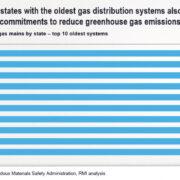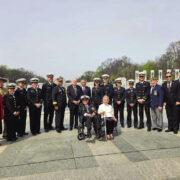The USCIS announced the final rule expanding the existing provisional waiver to allow certain family members of US Citizens and lawful permanent residents to apply for the provisional waiver of unlawful presence. 8 CFR Parts 103 and 212. The final rule goes on effect on August 29, 2016.
Prior to this expanded rule, only immediate relatives of US Citizens were eligible to request provisional waiver of unlawful presence before departing the United States for the processing of their immigrant visas. This was a limited to only a subset of all individuals statutorily qualified to request a waiver of unlawful presence.
The final rule expanding the provisional waiver of unlawful presence makes eligibility for the provisional waiver available to all individuals who are statutorily eligible for a waiver of the unlawful presence grounds of inadmissibility. 8 CFR Parts 103 and 212. These individuals are the parents, spouse, and son or daughter of US Citizens and spouse, sons or daughters of lawful permanent residents. The provisional waiver will also extend to the spouses and children who accompany or follow to join principal immigrants. To qualify for a provisional waiver, applicants must establish that their US citizen or lawful permanent resident spouses or parents would experience “extreme hardship” if the applicants are not allowed to return to the United States due to the unlawful presence bar. Applicants must also establish that his or her case warrants a favorable exercise of discretion and meet all other regulatory requirement.
Obtaining a conditional approval of a provisional unlawful presence waiver of inadmissibility is particularly helpful for individuals present in the United States without having been inspected and admitted or having been inspected or paroled since they are ineligible to adjust status inside the United States. The provisional waiver would also be helpful to individuals who entered the US under certain non-immigrant visa that has restrictions to adjusting to lawful permanent resident inside the US such as crew men who entered on a C-1/D visa. In addition, this is also helpful to spouse, sons or daughters of lawful permanent residents who overstayed their status while waiting for their visa priority dates to become current. An individual who entered the US on a fiancé k-1 visa based on a different US citizen fiancé/spouse will also benefit from the provisional waiver. These individuals would have to obtain their visa through the US consulate overseas but without an approved provisional waiver, would run the risk of not being able to return to the United States due to the unlawful presence bar. INA section 212(a)(9)(B)(i); 8 USC 1182(a)(9)(B)(i);
In addition, the expanded final rules provided for the following: 1) All individuals seeking provisional waivers, including those in removal proceedings before the EOIR must file applications for provisional waivers with USCIS. 2) Individuals are allowed to apply for provisional waivers even if USCIS has reason to believe that the individual may be subject to other grounds of inadmissibility. 3) Eliminated the proposal for temporal limitations that would have restricted eligibility for provisional waivers based on DOS visa interview scheduling. 4) Allows individuals with final orders of removal, exclusion, or deportation to be eligible for provisional waivers provided that the individual have already applied for, and USCIS has approved, an Application for Permission to Reapply for Admission into the United States after Deportation or Removal, Form I-212. However, an individual will be ineligible for a provisional waiver if ICE or CBP, after service of notice under 8 CFR 241.8, has reinstated the removal, deportation, or exclusion order prior to the individual filing the provisional waiver or while the provisional waiver application is pending.
* * *
Attorney Kenneth Ursua Reyes is a Certified Family Law Specialist. He was President of the Philippine American Bar Association. He is a member of both the Family law section and Immigration law section of the Los Angeles County Bar Association. He has extensive CPA experience prior to law practice. LAW OFFICES OF KENNETH REYES, P.C. is located at 3699 Wilshire Blvd., Suite 747, Los Angeles, CA, 90010. Tel. (213) 388-1611 or e-mail [email protected] or visit our website at Kenreyeslaw.com.
* * *
Please note that this article is not legal advice and is not intended as legal advice. The article is intended to provide only general, non-specific legal information. This article is not intended to cover all the issues related to the topic discussed. The specific facts that apply to your matter may make the outcome different than would be anticipated by you. This article does create any attorney client relationship between you and the Law Offices of Kenneth U. Reyes, P.C. This article is not a solicitation.








